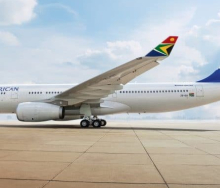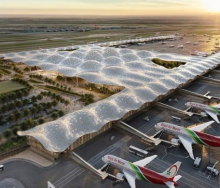It would be fair to suggest that travel agents are virtually indestructible, considering they’ve survived brutal agency commission cuts; the online travel revolution; and the COVID-19 pandemic. Yet the question remains: How will they maintain their relevance to customers in this new digital age? Will artificial intelligence, which powers so many technologies and encourages direct bookings, finally nullify their role?
In order to contextualise what is meant by artificial intelligence (AI), the bedrock of all Internet technology, one would first need to break down its three categories. ‘Narrow AI' can only solve singular or limited tasks, and is therefore inferior to the broad and complex intelligence of humans; Artificial General Intelligence (AGI) can accomplish any intellectual task that a human can; and Superintelligence AI, with its master algorithm, greatly exceeds all cognitive performance of humans.
For the most part, Narrow AI is employed by travel applications, and incorporates technologies such as digital voice assistants; search engines; recommendation engines; chatbots; and predictive or analytical tools (data, algorithms, machine learning). In other words, AI without a mind of its own, allowing machines to complete a finite set of actions that they were programmed to perform.
That said, Accenture, an Irish-American company that specialises in information technology services and consulting, recently surveyed 1 600 travel executives, which revealed that most travel organisations were barely scratching the surface of AI. James Walters, Global Director of Consumer Service at Booking.com, expressed the sentiment of many travel executives when he said, “We operate in an industry that is incredibly personal, emotional and complex."
The boom that South African travel agencies have experienced post-COVID has been echoed in other markets. Forbes Magazine published a survey in late 2021, suggesting that travel agencies in the US were experiencing a post-quarantine renaissance, despite all the available online travel technology. The US Bureau of Labor released a forecast the same year, stating: “The sheer number of travel and review websites can make travel planning a frustrating experience for some consumers, which may lead to an increasing number of people turning to travel agents to help filter through the options and give personal recommendations.” American Express Travel’s Global Trends Report concurred, citing the complex conditions that could arise when travelling against the backdrop of a global pandemic, when travel restrictions and rules were in place.
More recently, with the war in Ukraine, Forbes Magazine published an article advocating travel advisers in 2023, on the grounds that they were prepared for any crisis. The piece went on to say that technology has enabled agents to become even more specialised, which poses the question: Is AI really a threat to the role of a travel agent?
Linda Edwards, Operations Director of XL Turners Travel, said: “From my personal observations over the last few years with all the global issues, AI and a multitude of new online services, the travel agent is now more relevant than ever. They are able to navigate this new technology, saving clients valuable time, giving priceless advice, better understanding of local requirements, and being creative problem solvers. Generally, with the current high cost of travel, a lot of travellers prefer to use the knowledge and expertise of a great travel agent.”
Cassim Suleman, MD of Royal Travel, said AI was fine for point-to-point or local bookings, but for more complex routes, a fares expert was more cost effective and better equipped to deal with any ramifications when flights are missed, cancelled or delayed. He added that the COVID-19 pandemic had been a wake-up call for travellers who’d previously booked independently online. He had been approached by several consumers who realised the limitations of their online back-up and support. There is certainly little or no recourse for travellers whose plans go wrong or who find themselves or their bags delayed in a foreign country, if they hadn’t employed the services of a travel agent.















